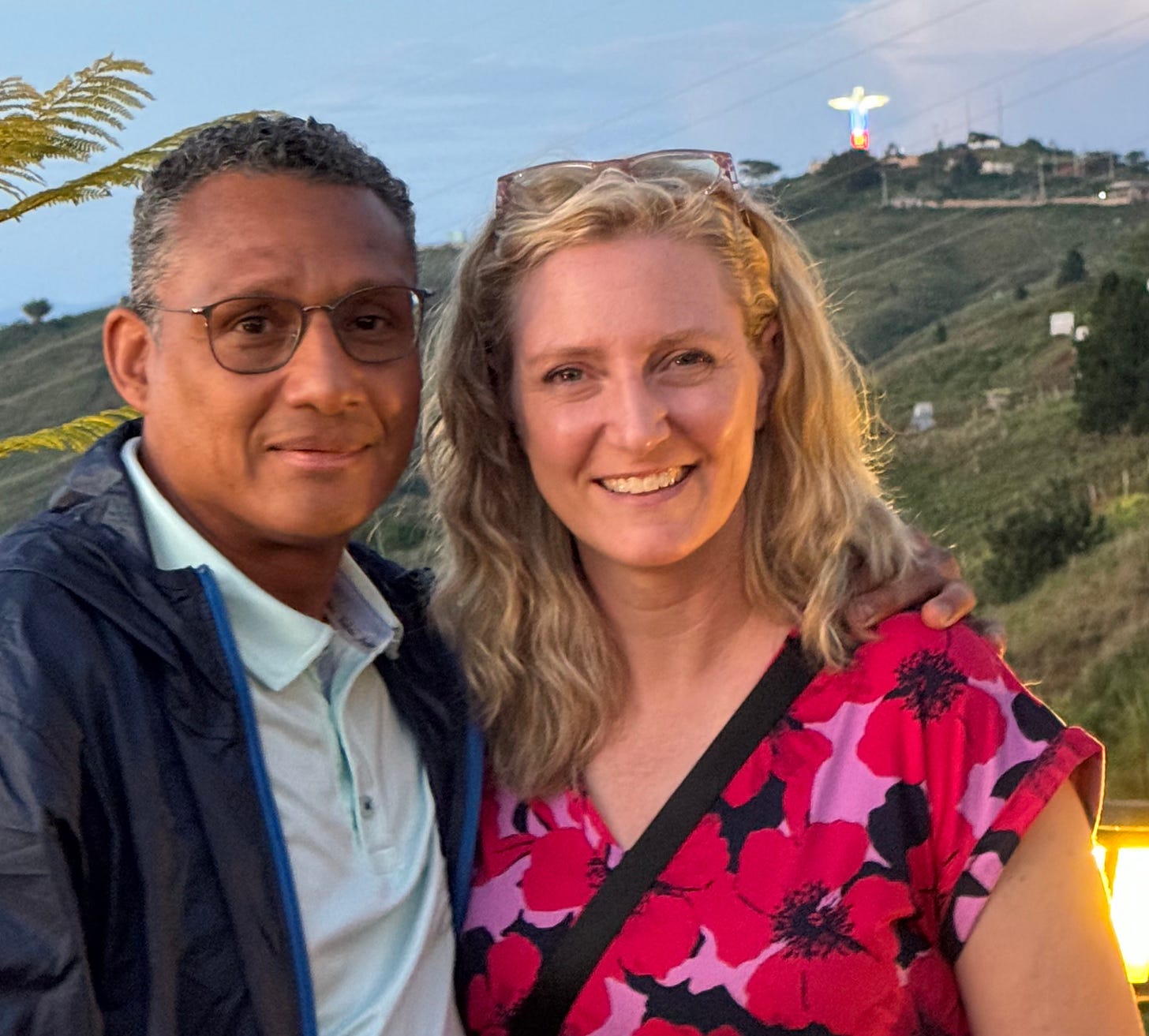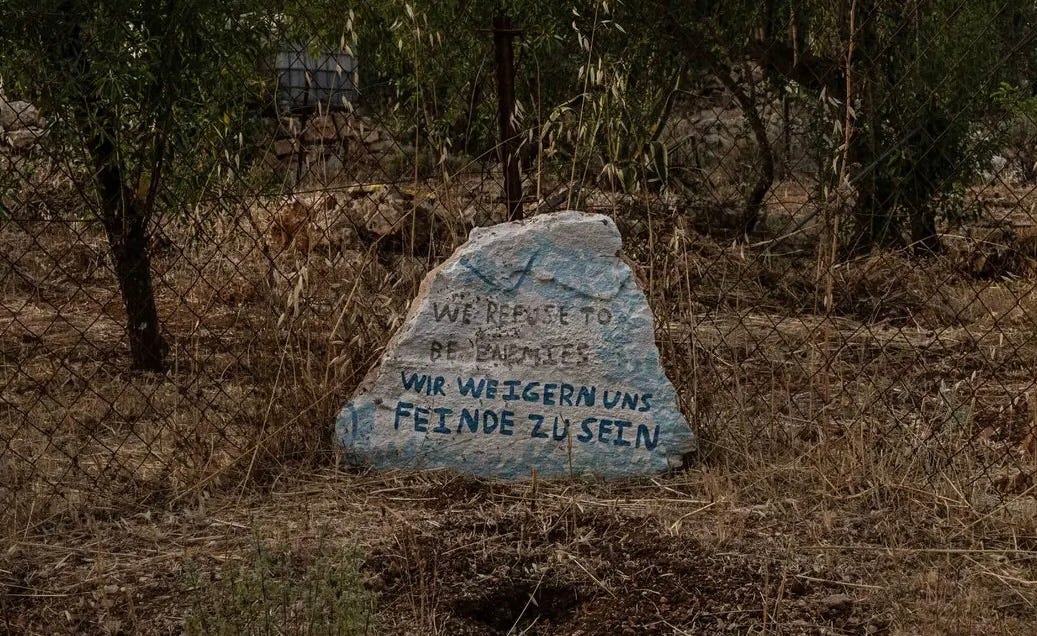We are naturally drawn to anti-heroes when we feel neglected and unheard. But they ultimately lead to destruction. I was reminded of that reality on a recent visit to Colombia and saw parallels to the current US political climate.
The Biblical story of Ahithophel, King David’s advisor who defected to Absalom during the rebellion, underscores the importance of avoiding the festering resentment that predisposes us to follow anti-heroes.
Over the last several months, seeing the unprecedented consolidation of a US political party around Trump, despite his criminal charges and convictions, a question has puzzled me: Why are people drawn to anti-heroes despite the chaos and destruction that follows them?
The question came to the forefront as I visited my husband’s family in Colombia for several weeks this summer. As we drove to visit his mother at his childhood home, I asked if the shops were the same as when he was growing up, flowing with hot coffee, arepas, and salsa music.
Thinking I said “shots” not “shops,” he recounted how he often heard gunfire in the night and woke up to dead bodies along the street where he walked to school. That was the time when paramilitary groups killed looters and drug addicts who roamed the streets. Trump has quipped “when the looting starts, the shooting starts.” This was that catchphrase tragically brought to life.
Colombia Is Investing in Communities to Counter Anti-Heroes
Last century, Colombia was known for violence and drug trafficking. Anti-heroes like Pablo Escobar filled the vacuum left by an administrative state that long struggled with building a just society. As far back as the revolution, like many countries, Colombia struggled with building an effective administrative state that worked for all people, not just the ruling class.
That kind of tension extended well into the 20th century, which saw a civil war between ruling factions, followed by long periods of violence and unrest. While the oligarchy entered a power-sharing arrangement to end the mid-century conflict, they neglected the needs of frustrated masses of people. As a result, drug cartels filled the void, offering the illusion of social mobility. Meanwhile, guerrillas raided and recruited from villages where the trains stopped running and economic lifelines were cut off for vulnerable people.
In recent decades, however, the government coupled law enforcement with policies and community investment to prevent the kind of despair that led people to find retribution and seeking the illusion of a better future. Now, in the urban neighborhood where my husband grew up, students are eligible for full-ride scholarships to college. The educational system also incorporates vocational training so young people can graduate high school with the ability to earn a living.
As a result, the middle class doubled from 15.6% in 2002 to 30.8% in 2020. When young people see hope for their future, they are less likely to be resentful and drawn to anti-heroes and their movements.
Resentment Makes People Easy Marks for Anti-Heroes to Exploit
When people are frustrated over unresolved problems that hold them back, it’s easy for resentment to build up. People who don’t feel like they are being heard become easy marks for anti-heroes like Escobar to exploit. Anti-heroes lack conventional moral qualities but people are drawn to them for their relatability and the thrill of defying societal norms. Their followers find a sense of meaning and belonging in groups that they might otherwise eschew.
Political strategist
of The Bulwark has remarked on the rise of the anti-hero in American pop culture, starting with The Sopranos and extending through Breaking Bad, Shameless, and a Taylor Swift song by the same name. This trend parallels the rise in the cost of higher education, housing, etc, that frustrates young people. Meanwhile, many baby boomers experience anxiety from volatile 401(k)’s, rather than fixed pensions, and fret as they see the cost of living rise and the culture they grew up in shift rapidly.The MAGA movement could be seen as a parallel to anti-heroes that arose in 20th century Colombia, where a populist leader filled the anxious vacuum left by unresolved societal issues. Last week, the RNC nominated an anti-hero presidential candidate, whose schemes and crimes don’t faze his supporters, despite many of them espousing religious commitments. He has promised to fight for them, so they are willing to overlook his longstanding issues of integrity.
Ahithophel’s Resentment Led Him to Support Absalom’s Insurrection
In the Old Testament, Ahithophel, David’s one-time advisor, was drawn to just such an anti-hero (2 Samuel 15-17). Ahithophel was Bathsheba’s grandfather (see 2 Samuel 23:34 and 2 Samuel 11:3), and likely harbored resentment when the king took advantage of her, impregnated her, and had her husband killed.
Though the king was confronted over his actions by the prophet Nathan and repented, for Ahithophel, the relational damage was done. We see no evidence that King David took steps to address the offense with Ahitophel, though it may have been expected in the honor-shame culture in which they lived.
Years later, when the king’s son Absalom led an insurrection, Ahithophel defected to become a supporter. Ahithophel demonstrates how vulnerable all of us are to being caught up in a movement full of false promises and destruction. Worse, we can be drawn away to dark places where we participate in acts that are far worse than anything done to us. Instead, we need to search our own hearts for resentment and be instruments of peace for those who are ensnared by bitterness.

Resisting the Lure of Shared Grievances
Reasons for resentment are bound to arise, but we need to prevent negativity from festering. In a democratic society, we have a responsibility to elect leaders that have the character and capacity to address complex problems that give rise to social unrest. Scriptures are clear on the value of capable leaders who put community flourishing over self-interest.
On an individual level, we need to make sure that bitterness doesn’t grow in our hearts, making us vulnerable to deception. Curtis Chang, reflecting on the current political moment on The Good Faith podcast, said,
“The process of submitting our darker demons to God’s redemptive work doesn’t mean ignoring them. It means confronting them, and wrestling with them with the power of the Spirit in us.”
That heart work is difficult, but necessary, especially when groups with shared grievances beckon us to join them.
The New York Times published a beautiful portrait of a Palestinian Christian family, the Nassars, who operate an olive grove near Bethlehem. Journalist Nicholas Kristof described how they face attempts by settlers to confiscate their land and prevent them from harvesting crops. Meanwhile, Hamas’ violence in Gaza and the Palestinian Authority’s corruption in the West Bank mean they can’t rely on political power to protect their livelihood. Yet the family actively works to keep their hearts free from bitterness. As one of them reflected,
“With violence, people will achieve more violence, will achieve more hatred, will achieve more bitterness and more enemies.”
For the Nassars, the one viable path forward is to model love and build relationships with others who can bear witness to their perseverance amid hardship.
It is tempting to become an Ahithophel—voting with a middle finger, demonizing our opponents, and despairing that problems go unresolved. But we need to be more like the Nassars. That means resisting bitterness and despair and loving our neighbors, rather than dehumanizing them. Operating in grace can empower us to resist the siren’s song of anti-heroes who, like Absalom, stoke our grievances and exploit them to their own ends.







What a wonderful commentary on the relationships between unheard populations and antiheroes. The Escobar/Trump parallel is quite interesting. I think this helps to remind us that phenomena like Escobar and Trump don't just suddenly happen by force of personality alone - there are people out there who elevates these "leaders", empower and allow them to be the forces of wreckage that they ultimately are. Great article.